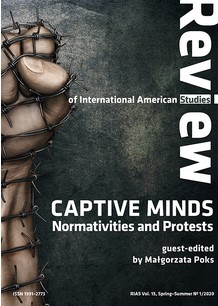Violence Hates Games? Revolting (Against) Violence in Michael Haneke’s Funny Games U.S.
Violence Hates Games? Revolting (Against) Violence in Michael Haneke’s Funny Games U.S.
Author(s): Michał KisielSubject(s): Studies in violence and power, Transformation Period (1990 - 2010), Film / Cinema / Cinematography, History of Art
Published by: Wydawnictwo Uniwersytetu Śląskiego
Keywords: Haneke; violence; affect; brutality; Funny Games U.S.; cinema;
Summary/Abstract: This article aims at exploring Haneke’s Funny Games U.S. as a protest against violence employed in the mainstream cinema. Satisfying compensatory needs of the spectators, constructing their identities, and even contributing to the biopolitics of neoliberalism, proliferating bloodthirsty fantasies put scholars in a suspicious position of treating them as either purely aesthetical phenomena or exclusively ethical ones. Haneke’s film seems to resist such a clear-cut binary; what is more, it contributes immensely to the criticism of mainstream cinematic violence. Misleading with its initial setting of a conventional thriller, Haneke employs absurd brutality in order to overload violence itself. The scenes of ruthless tortures are entangled in the ongoing masquerade, during which swapping roles, theatrical gestures, and temporary identities destabilize seemingly fixed positions of perpetrators and their victims, and tamper with the motives behind the carnage. As I argue, by confronting its spectators with unbearable cruelty devoid of closing catharsis, Funny Games deconstructs their bloodthirsty desire of retaliation and unmasks them as the very reason for the violence on screen. Following, among others, Jean-Luc Nancy and Henry A. Giroux, I wish to demonstrate how Haneke exhausts the norm of acceptable violence to reinstate such a limit anew.
Journal: Review of International American Studies
- Issue Year: 13/2020
- Issue No: 1
- Page Range: 183-196
- Page Count: 14
- Language: English

